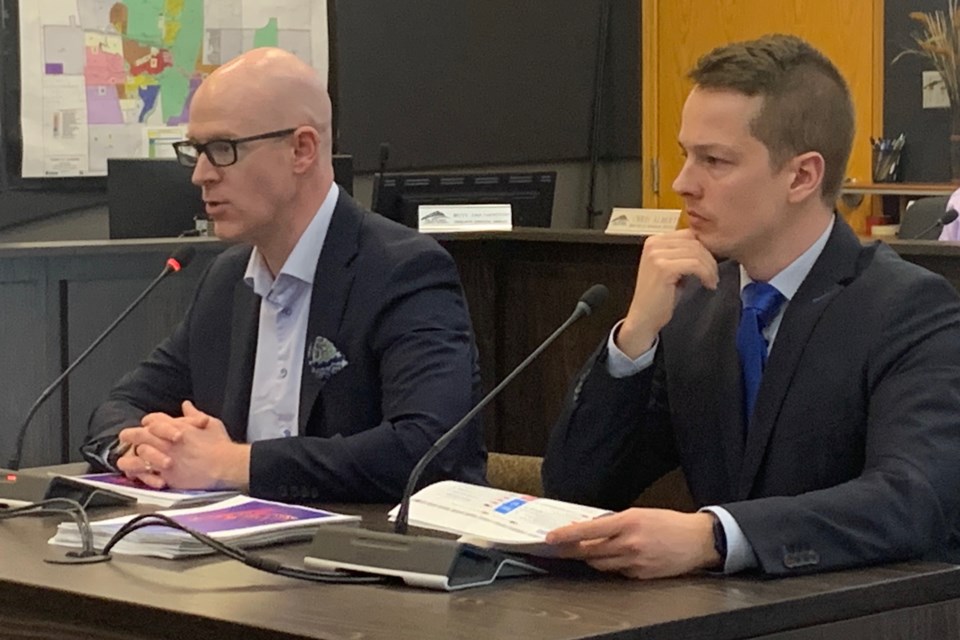SUNDRE – The municipality’s financial state of affairs appears to be in good shape following the annual audit.
“They do not anticipate issuing anything but an unqualified report, which is as good as it gets for auditing,” said Chris Albert, director of corporate services, referring to auditors with KPMG LLP.
“They don’t like to say everything is perfect,” Albert told council on April 28 during a regular meeting following a presentation by chartered accountants Colin Mitchell, partner, and Samuel Straka, senior manager.
But there were no major areas of concern with the municipality otherwise in a good position as it continues to pay down debt.
Among the documents was a statement of cash flows, which is a way of understanding where cash comes from and goes to, with administration monitoring for trends, said Albert, adding those figures are fairly consistent year-to-year.
If most of the cash for a number of years was drawn through financing, that could indicate a long-term viability concern, he said.
“In our case, those numbers indicate that we’re paying down our debt,” he said.
Albert’s comments came after a brief public presentation from the auditors that later went in-camera for approximately 40 minutes.
“It gives an important additional layer of oversight,” Mitchell said about the auditing process, adding it also “hopefully assists council in its oversight capacity in being comfortable with the numbers that are used to make informed decisions around budgeting and strategic forecasting and other key decision making.
“We remain as always professionally skeptical and challenge administration to provide the evidence to support the numbers in the financial statements,” he said.
Once the open portion of the discussion resumed prior to council passing a motion to approve the 2024 auditor’s report as well as the audited financial statements and the financial information return, Albert explained why there is an in-camera component.
“The reason that council does go into a closed session prior to this, is first of all, a lot of the information that is contained within the auditor’s findings is propriety information. As well, it is confidential information,” he said.
“That is why we step into a closed meeting; council can have those one-on-one independent, unbiased conversations with the auditor and then we come back to approve the financial statements.”
The documents are all prepared in compliance with public accounting standards, said Albert, who then presented a few highlights including the municipality’s net financial assets of $322,000.
“A quick definition of that means that with our cash on hand – with our liquid investments – we could actually theoretically discharge all of our liabilities,” he said.
“That is a really good indication to me that we are in a good position.”
If that number were to go negative, it would not necessarily automatically be an indication of anything wrong, he said.
“But if it does stay negative for an extended period of time, that’s typically something that we keep an eye on,” he added.
Non-financial assets, which represent all of the town’s infrastructure, are the biggest component of the municipality’s financial statements, he said.
The financial information return (FIR) is a provincially mandated document that takes all of the information from financial statements and translates the data into a format the province compiles to more consistently keep track of all municipalities, he said.
Mayor Richard Warnock asked what the difference is from council’s perspective between the audited financial statements and the regular quarterly reports.
Albert said there is not a significant difference between the two.
“What I don’t report quarterly is the liabilities and the tangible capital assets,” he said, adding that information from an accounting perspective is entered at the end of the year.
“They don’t change significantly throughout the year,” he said, adding council would be informed in the event of any major changes.
As well, quarterly reports are mainly focused on the cash that is available on hand to complete projects that are on the docket.
Additionally, quarterly reports are not audited and prepared primarily for the purpose of providing information, he said.



